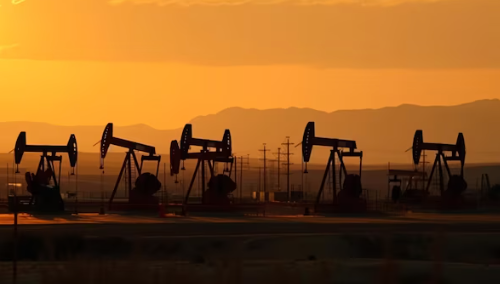$XOM $CVX $BP
#EnergySector #OilAndGas #EnvironmentalLaw #ClimateChange #EndangeredSpecies #GulfOfAmerica #LegalDecision #BidenAdministration #DrillingRights #SustainableEnergy #CarbonFootprint #OceanConservation
In a landmark decision that reverberated through the corridors of energy corporations and environmental advocacy groups alike, a federal district judge on Thursday took a definitive stand against the Biden administration’s move to auction off oil and gas drilling rights in the Gulf of America. This ruling, hailed by environmentalists and criticized by the energy sector, underscores the growing tension between economic development objectives and environmental protection efforts. The court pinpointed a failure on the part of the government to conduct a comprehensive analysis of the potential environmental impacts, particularly concerning climate change and the well-being of endangered whale species in the Gulf.
The Biden administration’s plan to open up parts of the Gulf for drilling had been framed as a step towards bolstering the nation’s energy independence and economic growth. However, this strategy has faced significant pushback from environmental groups and parts of the public who are increasingly worried about the global climate crisis and biodiversity loss. The judge’s ruling emphasizes that the government’s environmental review process was flawed and insufficient, lacking a detailed examination of how the proposed drilling activities might exacerbate climate change and negatively affect the fragile marine ecosystems that endangered whales depend on.
This decision marks a critical moment in the ongoing debate over America’s energy future and the global fight against climate change. It signals a judicial acknowledgment of the need for more stringent environmental scrutiny in the face of energy development initiatives. This ruling could set a precedent for future cases, potentially leading to more rigorous environmental assessments and a reevaluation of the balance between energy development and environmental conservation. The implications for the oil and gas industry are significant, with companies like Exxon Mobil ($XOM), Chevron ($CVX), and BP ($BP) facing increased uncertainty about the future of their drilling operations in vital areas like the Gulf of America.
Moreover, this case reflects the broader challenges facing the Biden administration as it seeks to navigate the complex interplay of economic, environmental, and social priorities. With climate change and environmental preservation at the forefront of national and global agendas, decisions about resource extraction and energy production are increasingly scrutinized. This ruling could galvanize further legal and public advocacy efforts aimed at protecting the environment, while simultaneously prompting the government and the energy sector to explore more sustainable and ecologically sensitive approaches to energy production. The conversation around energy policy, climate change, and environmental protection is evolving, and this ruling is a pivotal moment in that ongoing narrative.






Comments are closed.